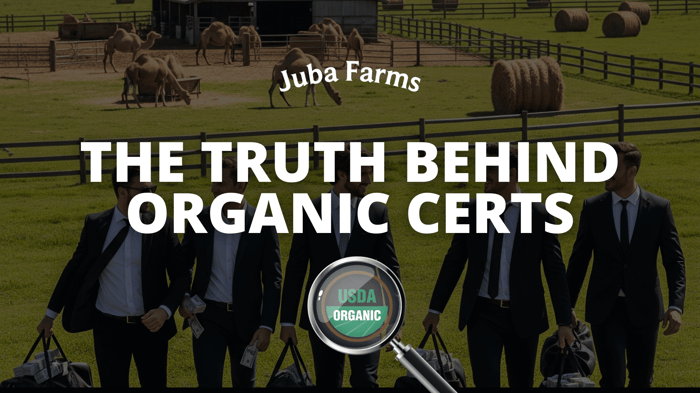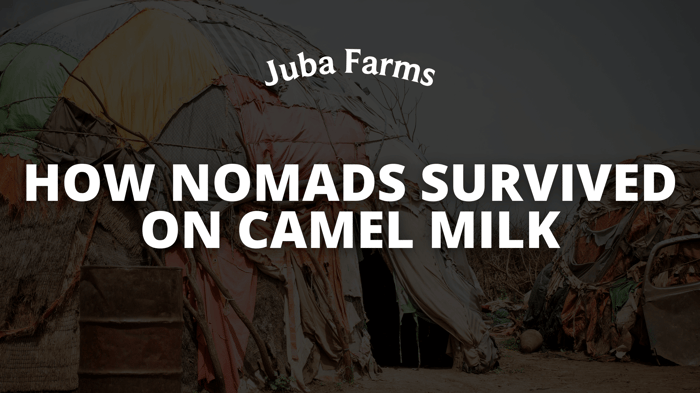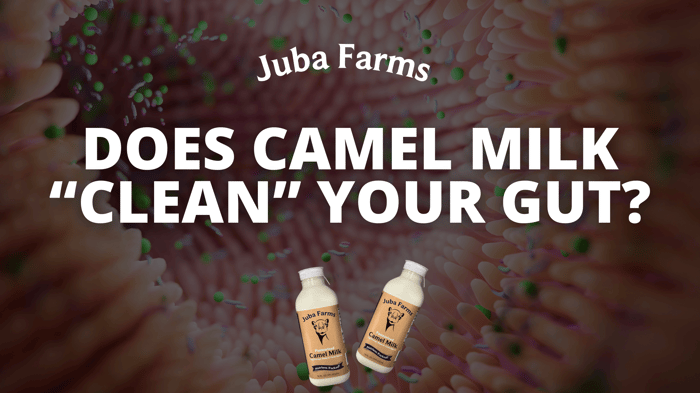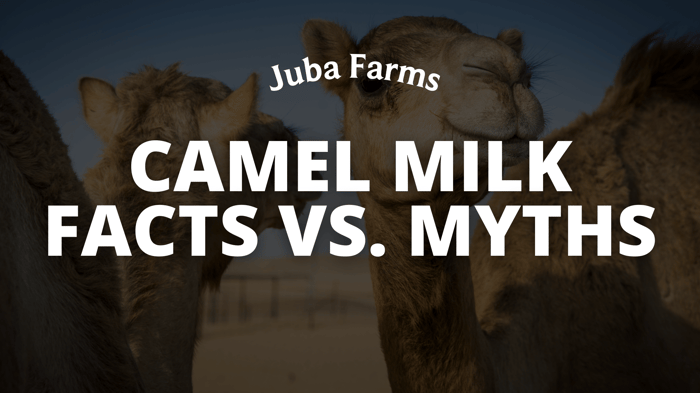Table of Contents
When you walk down the dairy aisle at your local grocery store, you're bombarded with labels. Organic, grass-fed, pasture-raised, hormone-free – the list goes on. But what do these labels really mean, especially when it comes to organic camel milk? As someone who's spent considerable time researching the camel milk industry in America, I can tell you that the reality is far more nuanced than what those shiny certification stickers suggest on traditional dairy.
The organic camel milk market in the United States is still relatively small but growing rapidly. Health-conscious consumers are discovering what nomads have known for centuries: camel milk is a nutritional powerhouse. But here's where things get interesting – and complicated. The organic certification process that works reasonably well for established dairy operations faces unique challenges when applied to camel milk production.
Understanding USDA Organic Certification
Let's start with the basics. The USDA Organic certification is governed by the National Organic Program (NOP), which sets strict standards for organic production. For dairy products to earn that organic label, farms must meet several key requirements: animals must be fed 100% organic feed, have access to pasture, receive no antibiotics or synthetic hormones, and the farm must undergo a three-year transition period from conventional to organic practices.
Sounds straightforward, right? Well, not exactly. The certification process involves extensive paperwork, regular inspections, and significant fees that can range from $2,000 to $10,000 annually, depending on the size of the operation. For large-scale dairy operations, these costs are manageable. But for small family farms – particularly those raising camels – the financial burden can be overwhelming.

The Organic Camel Milk Dilemma
Here's where the story gets more complex. Most organic camel milk in the U.S. comes from small, family-owned farms that operate with organic practices but haven't obtained official certification. These farmers are passionate about their animals and committed to sustainable, natural farming methods. They feed their camels organic feed, provide extensive pasture access, avoid synthetic chemicals, and maintain the highest standards of animal welfare. In essence, they're producing high-quality organic camel milk without the paperwork to prove it.
This creates a frustrating situation for both farmers and consumers. Farmers who are already stretched thin financially and operationally must choose between investing in certification or investing in their animals and infrastructure. Many choose the latter, believing (quite reasonably) that their resources are better spent on providing excellent care for their camels rather than navigating bureaucratic requirements.
The Certification Loopholes You Should Know About
The organic certification system, while well-intentioned, has several loopholes that might surprise you. First, the inspection process typically occurs once a year and is often scheduled in advance. This means farmers know exactly when inspectors will arrive, potentially allowing them to make temporary changes to pass inspection.
Second, the definition of "access to pasture" is surprisingly flexible. The regulations require that organic dairy animals have access to pasture during the grazing season, but they don't specify how much pasture or for how long. Some large organic operations have been criticized for providing minimal outdoor access while still maintaining their certification.
Third, organic feed requirements can be met through purchasing certified organic feed, but there's less oversight of where that feed actually comes from or how it's transported. A farm could be feeding their animals organic grain that traveled thousands of miles in fuel-guzzling trucks, raising questions about the overall environmental impact.
Perhaps most importantly, the certification process focuses heavily on inputs (what goes into the animals) rather than outcomes (the quality of life of the animals or the final product). A farm can technically meet organic standards while providing suboptimal living conditions for their animals, as long as they check all the regulatory boxes.
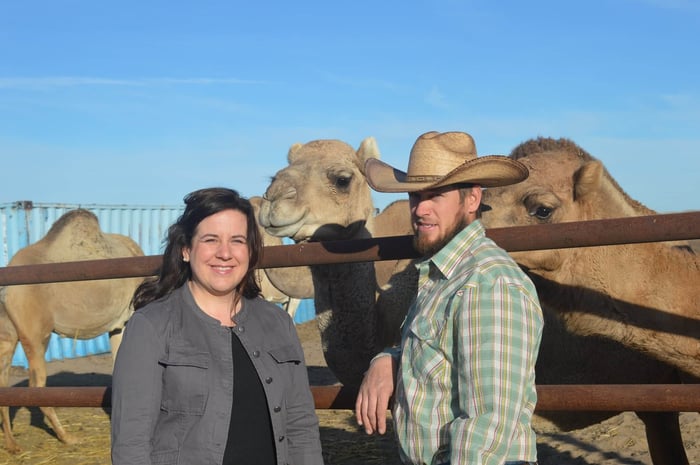
Small Farms, Big Standards
Many of the camel farms supplying milk in the U.S. are family operations with 50–300 animals. These farmers often have closer relationships with their camels than large-scale dairy operations have with their cows. They know each animal by name, understand their individual personalities, and provide personalized care that would be impossible in a larger setting.
These small farms often exceed organic standards in meaningful ways. Their camels typically have unlimited access to vast pastures, eat locally-sourced organic feed, and receive individual attention that ensures optimal health and welfare. The farmers often live on the property and monitor their animals around the clock – a level of care that goes far beyond what certification requires.
Yet without that official organic label, these farms face marketing challenges. Consumers have been trained to look for certification as a sign of quality, even though the reality is more complex.
The Economics of Certification
The financial burden of organic certification falls disproportionately on small farms. While a large dairy operation might spread certification costs across thousands of animals, a small camel farm might pay the same fees for just a few dozen animals. This creates a significant per-animal cost that can make certification financially unfeasible.
Additionally, the three-year transition period required for organic certification can be financially devastating for small farms. During this period, farmers must follow all organic practices but cannot charge premium prices for their products. For established row crop operations, this might be manageable, but for specialty livestock like camels, where the market is already limited, it can be financially impossible.
How Juba Farms Ensures Organic Camel Milk QualityAt Juba Farms, we understand these challenges firsthand, which is why we've taken a different approach. We only partner with farms that maintain the highest standards and run their operations on organic practices. Our partner farms exceed what most certified operations provide – they just don't have the paperwork to prove it.
When we evaluate potential partners, we conduct thorough assessments of their operations. We examine their feed sources, review their pasture management practices, analyze their animal health protocols, and understand their overall philosophy. We've found that many of the most passionate camel farmers are too focused on providing exceptional care for their animals to navigate the bureaucratic certification process.
Our partner farms typically offer their camels unlimited access to vast, chemical-free pastures where they can roam freely. They source organic feed locally when possible, avoid synthetic hormones and antibiotics entirely, and maintain herd sizes that allow for individual animal attention. This isn't just about meeting standards – it's about exceeding them because it's the right thing to do.
What This Means for Those Interested in Organic Camel Milk
As someone interested in organic camel milk, this information should empower you to look beyond labels when considering camel milk options. At Juba Farms, we believe transparency matters more than certification. We're happy to discuss our partner farms' methods and provide complete transparency about our sourcing practices.
When evaluating any camel milk supplier, ask the tough questions. Where does their milk come from? How are the camels treated? What do they eat? How much pasture access do they have? A company that's truly committed to producing quality camel milk using organic practices will be eager to share this information, regardless of whether their partner farms have official certification.
The Future of Organic Camel Milk Standards
The organic camel milk industry in America is at an interesting crossroads. As farmers continue to prove that high standards don't require expensive certification, we're likely to see the development of alternative verification systems that better serve small-scale operations.
We believe the future lies in direct relationships between companies and farms, with transparency and accountability built into every step of the process. Sometimes the best organic milk comes from farmers whose energy goes into caring for their animals rather than filing paperwork.
At Juba Farms, we guarantee you:
- 100% pure camel milk
- Sourced from FDA approved grade A dairies with the highest standards of quality
- The best prices on camel milk in the U.S.
- With a cold delivery straight to your door




